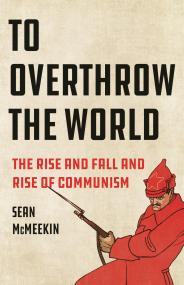By clicking “Accept,” you agree to the use of cookies and similar technologies on your device as set forth in our Cookie Policy and our Privacy Policy. Please note that certain cookies are essential for this website to function properly and do not require user consent to be deployed.
Power And Persuasion
Ideology And Rhetoric In Communist Yugoslavia, 1944-1953
Contributors
Formats and Prices
Price
$45.00Format
Format:
Trade Paperback $45.00This item is a preorder. Your payment method will be charged immediately, and the product is expected to ship on or around December 22, 2000. This date is subject to change due to shipping delays beyond our control.
Also available from:
When the Communist Party of Yugoslavia (CPY) took power after the Second World War, it had a vision for a new and better society in which all humans would live together in peace and prosperity and in which their mutual exploitation would be eliminated. That vision required changes not only in the country’s political and economic structure, but in its citizen’s values, morals, goals, aesthetics, and social behavior. Based on extensive archival research, Lilly’s study describes the CPY’s struggle to realize that social and cultural transformation by means of oral, written, and visual persuasion in the first nine years after the war.Lilly’s descriptions of party policies in such media as newspapers, journals, educational curricula, group activities like parades, workplace competitions, and volunteer labor brigades, and the production of both high and popular culture depict the evolving form and content of the party’s persuasive rhetoric. Her archival work, moreover, reveals both societal reaction to such rhetoric and the extent to which party leaders adapted their persuasive policies in response to feedback from below. In this respect, Lilly places her work at the intersection of cultural history, cultural studies and politics by discussing how individuals and different groups perceive, digest, and remake culture from above in their own image.Ultimately, then, this study not only modifies current understandings of Yugoslavia’s postwar history but informs us about the nature of state-society relations in dictatorial regimes and the complexities of cultural change. Moving beyond an interpretation of Yugoslavia’s political and cultural history in the 1940s, it addresses broader questions like: How do dictatorial regimes maintain power and support? How do subject populations express their views and exert influence even under oppressive conditions? When and how does persuasive rhetoric work and what are its limits?
Genre:
- On Sale
- Dec 22, 2000
- Page Count
- 284 pages
- Publisher
- Avalon Publishing
- ISBN-13
- 9780813338255
Newsletter Signup
By clicking ‘Sign Up,’ I acknowledge that I have read and agree to Hachette Book Group’s Privacy Policy and Terms of Use







